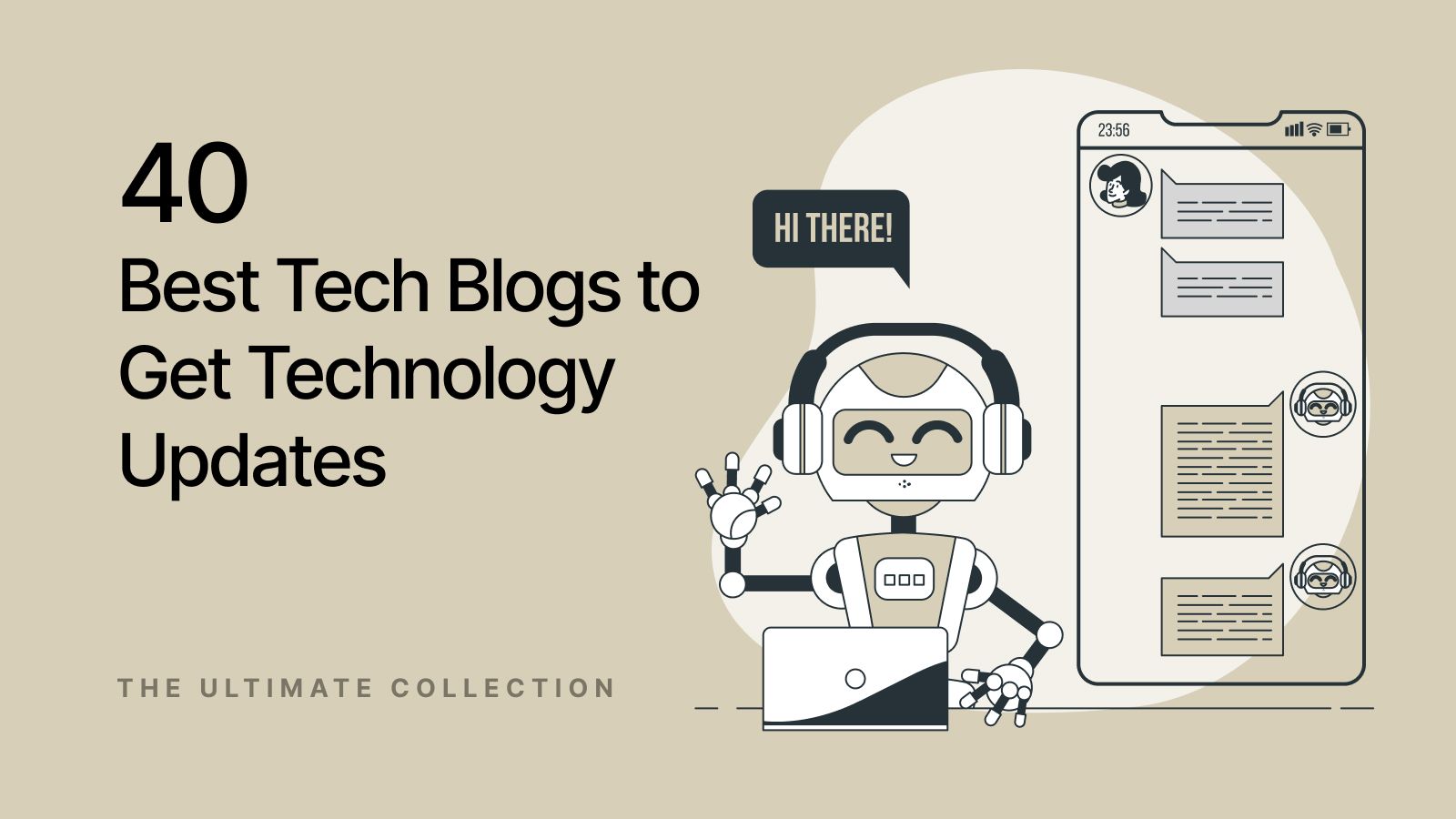The Development of the Best tech blog: A Trip Via Tech History and Future Trends
The Development of the Best tech blog: A Trip Via Tech History and Future Trends
Blog Article
How Blockchain Innovation Is Revolutionizing Information Protection
Blockchain innovation is essentially altering the landscape of data security by presenting a decentralized structure that promises improved openness and strength. Unlike conventional systems, which count on central data databases, blockchain distributes information throughout a network, lessening vulnerabilities and single points of failing. The use of innovative cryptographic techniques makes certain that information stays tamper-proof, fostering depend on amongst stakeholders and customers.
The Basics of Blockchain
Blockchain modern technology, a cutting edge concept in electronic information management, essentially changes just how information is kept and safeguarded. At its core, a blockchain is a distributed ledger that videotapes deals across a network of computer systems, guaranteeing openness and immutability. The modern technology operates a chain of blocks, each including a listing of transactions. Once a block is filled up, it is time-stamped and connected to the previous block, developing a sequential chain.
Trick to recognizing blockchain is the hashing procedure, which secures purchase data into an unique alphanumeric code. This cryptographic function ensures that any alteration in the purchase information causes an entirely various hash, therefore securing versus meddling. The agreement system, one more essential part, validates and validates new transactions through a network of nodes, thereby removing the demand for a central authority.
Furthermore, blockchain's append-only framework guarantees that data, once added, can not be removed or changed. This particular warranties a long-term and proven record of purchases, fostering trust fund among individuals. Therefore, blockchain offers a durable structure for data honesty, supplying markets a dependable method for monitoring and handling digital details in a secure, transparent way.
Decentralization and Safety And Security
Decentralization, a core concept of blockchain innovation, dramatically improves information protection by distributing control throughout a network rather than counting on a single, central entity. This circulation minimizes the threat of single factors of failure, which prevail in standard centralized systems. By spreading data across various nodes, blockchain makes sure that also if one node is jeopardized, the whole network stays safe. This redundancy not only strengthens the honesty of the information but also increases its strength to cyberattacks and system failures.

Moreover, decentralization empowers customers with better control over their information. Each individual in the network has access to the whole blockchain, permitting them to verify and audit purchases individually. This transparency cultivates trust amongst customers, as they do not have to count on a main authority to ensure data honesty. In general, decentralization contributes in boosting data security in blockchain networks.

Cryptographic Techniques
At the heart of blockchain innovation, cryptographic techniques play a crucial function in guarding information, ensuring both confidentiality and integrity. Cryptography in blockchain employs a combination of asymmetric and symmetrical algorithms to encrypt data, making it accessible just to accredited parties.
Hash features are another essential element, changing input data into a fixed-size string of personalities, successfully creating a distinct digital fingerprint for every block. This guarantees that any attempt to alter the information will cause an entirely various hash, therefore maintaining the immutability of the blockchain. Digital trademarks verify the authenticity and stability of deals, giving a layer of non-repudiation.
The decentralized nature of blockchain, incorporated with durable cryptographic strategies, eliminates the requirement for intermediaries, reducing prospective vulnerabilities. As blockchain modern technology develops, advancements in cryptography such as zero-knowledge evidence and homomorphic file encryption remain to improve safety actions, better fortifying information protection in this revolutionary digital ledger system.
Use Cases Throughout Industries

In the health care industry, blockchain guarantees the safe storage space and sharing of client records, promoting interoperability while securing delicate data from unauthorized accessibility. This modern technology encourages people with control over their medical history and promotes smooth sychronisation among medical care providers.
Supply chain monitoring advantages considerably from blockchain's unalterable journal, which ensures traceability and credibility of products from origin to customer. By enhancing openness, blockchain helps alleviate concerns such as counterfeiting and unethical sourcing.
In addition, blockchain's decentralized nature is improving the power sector by enabling peer-to-peer energy trading, where customers can purchase and market excess sustainable energy straight. This promotes a more reliable and sustainable energy ecological community.
In the world of intellectual residential or commercial property, blockchain supplies a tamper-proof system for creators to sign up and shield their works, making certain rightful attribution and reasonable compensation. These diverse usage instances underscore blockchain's function as an essential pressure in redefining data safety and security across industries.
Future of Data Security
As we aim to the future of information security, blockchain technology is poised to play a critical role in securing digital information. With its decentralized and unalterable qualities, blockchain uses a robust framework for protecting delicate data click for source versus unapproved gain access to and cyber risks. This technology ensures that when data is tape-recorded, it is almost difficult to alter without detection, therefore providing a considerable advantage over typical data storage space approaches.
The combination of blockchain with various other sophisticated technologies, such as fabricated knowledge and the Internet of Points (IoT), is expected to boost data security methods further. By leveraging smart agreements, companies can automate and impose safety methods, decreasing human error and raising effectiveness. In addition, blockchain's capability to provide clear and traceable purchases will strengthen depend on and liability in information monitoring methods.
As regulatory landscapes develop, blockchain's compliance-friendly nature will certainly end up being progressively relevant. It can help organizations satisfy stringent information security regulations, such as the General Data Defense Policy (GDPR) and the California Customer Personal Privacy Act (CCPA), by supplying proven documents of information handling tasks. Eventually, blockchain's distinct attributes position it as a transformative tool in the ongoing pursuit to safeguard the digital world versus ever-evolving cyber threats.
Conclusion
Blockchain modern technology represents a standard shift in information protection by leveraging decentralization and cryptographic methods to improve transparency, trust fund, and information stability. Its ability to eliminate solitary points of failure and utilize agreement devices substantially lowers the risk of fraud and cyberattacks. This cutting-edge structure not only encourages individuals with better control over their information however likewise lines up with regulative conformity. As cyber dangers evolve, blockchain becomes a crucial device for durable data protection throughout different markets.
Blockchain modern technology is essentially altering the landscape of data safety by presenting a decentralized structure that guarantees enhanced transparency and strength. Unlike conventional systems, which count on central data databases, blockchain distributes information throughout a network, lessening susceptabilities and solitary points of failure.Decentralization, a core principle of blockchain innovation, considerably boosts try this web-site information safety by distributing control throughout a network instead than counting on a particular, centralized entity.At the heart of blockchain innovation, cryptographic methods play a Look At This pivotal role in safeguarding data, ensuring both discretion and stability.Blockchain technology stands for a paradigm shift in data safety by leveraging decentralization and cryptographic techniques to improve openness, trust, and information integrity.
Report this page